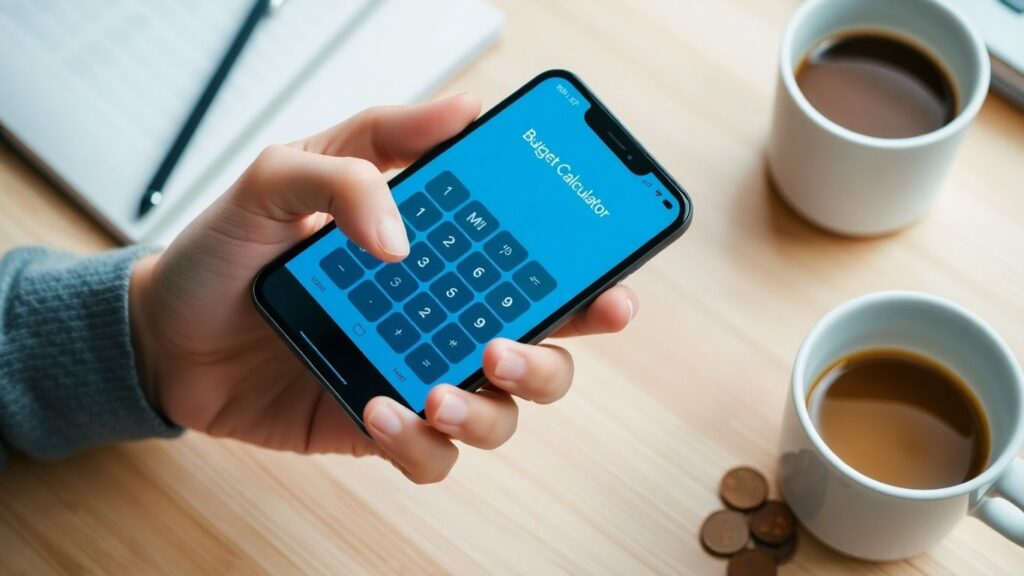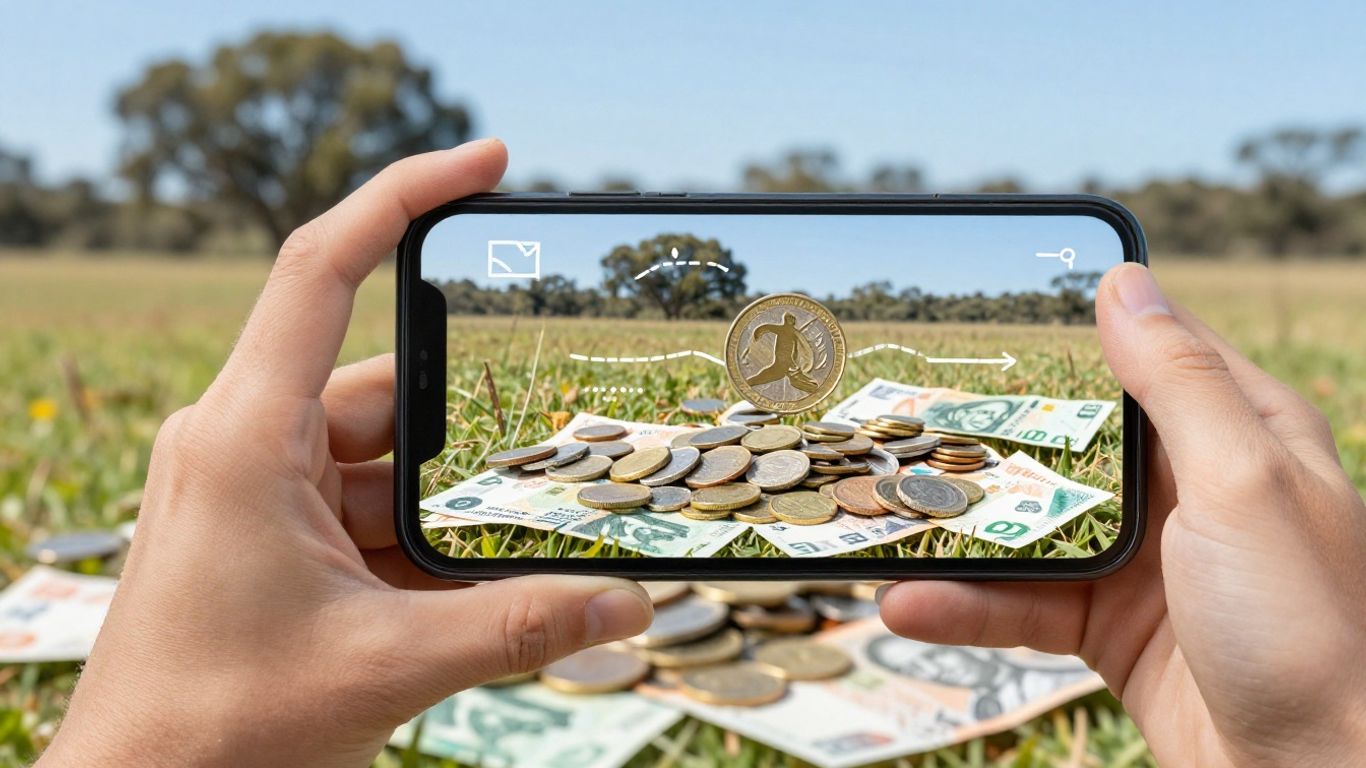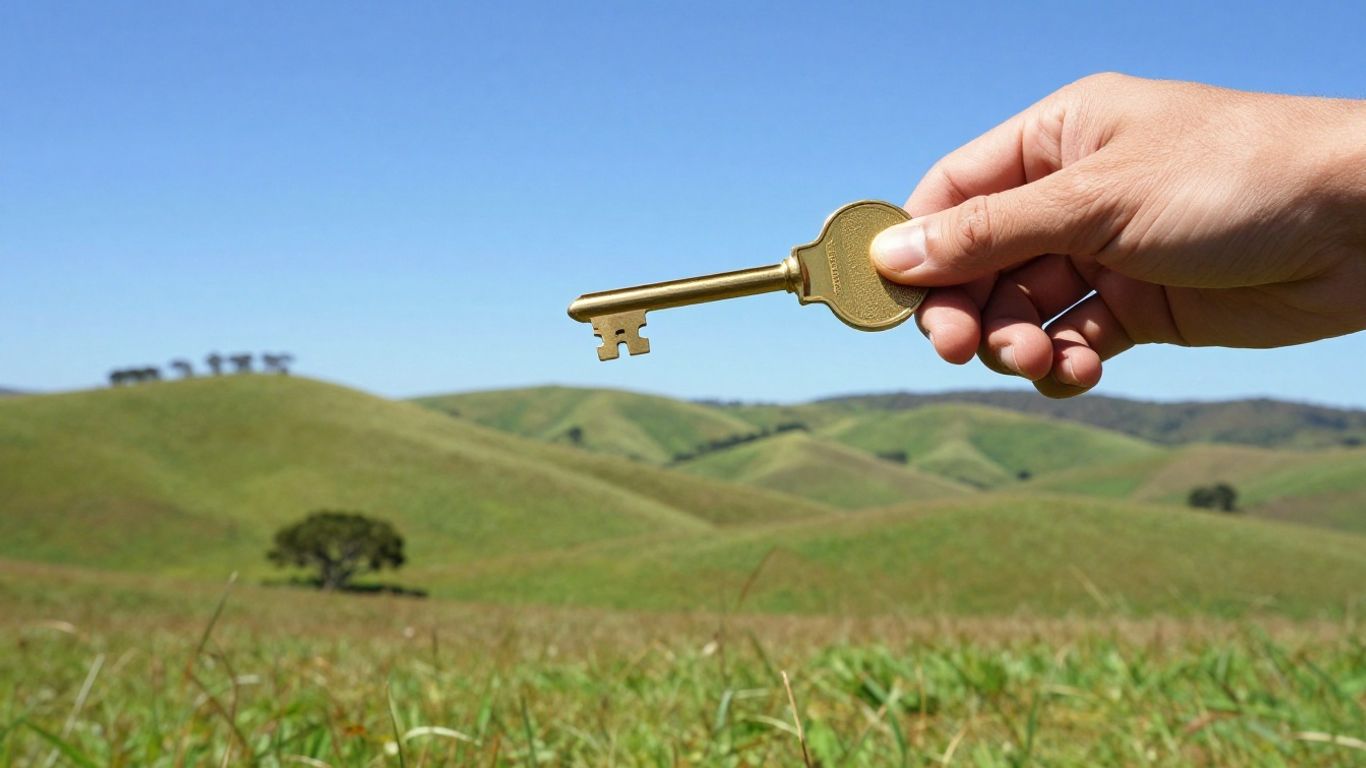Trying to keep on top of your money can feel like a full-time job. If you’re anything like me, the idea of writing everything down or updating a spreadsheet every week is enough to make you give up before you even start. That’s where a budget calculator app comes in handy. These apps take away a lot of the hassle, making it much easier to see where your money goes, plan for bills, and even save up for something special. In 2025, these apps are smarter and more user-friendly than ever. Whether you’re saving for a holiday or just trying to avoid running out of cash before payday, a budget calculator app can really help you get organised without all the stress.
Key Takeaways
- A budget calculator app makes it easier to track your spending and manage your money without using spreadsheets or pen and paper.
- Most apps can automatically sort your expenses, so you can see exactly where your money goes each week or month.
- Features like real-time tracking, alerts, and custom categories help you stay on top of bills and avoid overspending.
- Budget calculator apps can help you set savings goals, pay off debt, and even work together with family or a partner on shared finances.
- There are both free and paid apps available, so you can pick one that fits your needs and budget without missing out on useful features.
Understanding the Power of a Budget Calculator App

Why Budgeting Matters for Financial Health
Budgeting doesn’t just mean tracking dollars in and out. It’s about understanding what you can actually afford, stopping overspending before it starts, and feeling confident about your choices. Without a clear system for watching where your money goes each week, things can get chaotic fast. We all want savings for emergencies, fun things, and the future, but sometimes it feels impossible just to get by. That’s where these apps step in—they turn chaos into something you can actually work with.
Common Benefits of Budget Calculator Apps
- Spot hidden spending that drains your account
- Break the paycheque-to-paycheque cycle
- Build better habits for saving and debt repayments
When you know your numbers, even a small win—like seeing your savings grow or finally knocking out a bill—makes a tough month feel lighter.
Transforming Traditional Money Management
Spreadsheets, scribbled notes, that pile of receipts on the fridge—they can all be replaced by one smart app. Budget calculator apps do the maths for you and keep your records up to date. Forget having to remember which transaction went where or trying to make sense of messy paper trails.
| Method | Manual Work Required | Ease of Use | Real-Time Updates |
|---|---|---|---|
| Pen and Paper | High | Low | No |
| Spreadsheet | Medium | Medium | No |
| Budget Calculator App | Low | High | Yes |
Plus, with auto-syncing to your bank accounts, you’ll never be weeks behind on tracking again. Apps provide a quick-glance view and break costs down by category. If you want to get a sense of how these categories help, the way budgeting apps organise your expenses makes it obvious where your money is really going.
Overcoming Common Barriers to Budgeting
Let’s be honest—most of us don’t jump out of bed excited to track expenses. We lose receipts, forget transactions, or just hate messing with numbers after a long day.
A quality budget calculator app solves these problems. Here’s how:
- Automates the painful bits: Automatically categorises expenses from your bank
- Shows the big picture, painlessly: Easy charts and alerts mean you’ll spot issues without crunching numbers
- Reminds you to stay on track: Helpful notifications when bills are due or spending creeps too high
People often give up on old-school budgeting because it feels complex or takes up too much time. Budget calculator apps are designed to feel easy enough that you’ll actually stick with them, even if numbers are not your thing.
Key Features That Set the Best Budget Calculator Apps Apart
Real-time expense tracking is the backbone of effective budgeting. The leading apps for 2025 automatically pull in your bank transactions and credit card activity. No more waiting days for your balance to update—every swipe of the card or tap on your phone instantly shows up. This live stream of financial data means you’re not left wondering where your cash disappeared at the end of the month.
- Transactions are synced across all your devices so you can check your finances at home, work, or out and about.
- Some apps allow you to upload receipts and sort them automatically.
- Many offer integration with Australian banks, which helps avoid manual data entry and errors.
Here’s a quick comparison of top app features:
| App | Real-Time Sync | Manual Entry | Multi-Device Support |
|---|---|---|---|
| Monarch Money | Yes | Yes | Yes |
| YNAB | Yes | Yes | Yes |
| Goodbudget | No | Yes | Yes |
When you can see every purchase pop up right away, it’s much easier to steer your spending in the right direction.
Not all spending is created equal, and not everyone fits into the same template. The best budget calculator apps let you build and adjust categories to suit your lifestyle. Groceries, eating out, medical bills, pets—you decide what matters.
- Add, rename, or delete categories as your life changes
- Flexible limits mean you’re not stuck with old budget rules
- Subcategories let you get specific (for example, splitting utilities into gas, electricity, and internet)
Using a truly personalised approach like this makes budgeting far more useful—and far less of a chore.
If you’re curious about which apps take custom categories to the next level, check out the top budget apps for 2025 for some strong options.
Automated insights and alerts are what set modern budgeting apps apart from the spreadsheets of yesterday. Rather than poring over rows of numbers, your app does the heavy lifting—spotting trends, flagging overspending, and nudging you with reminders or goal updates.
- Get notified when you’re about to overspend in a category
- Receive monthly reports that lay out your biggest expenses and areas to cut back
- Targeted alerts for unusual transactions, helping to spot mistakes or fraud fast
Many users say these features keep them on track without resorting to spreadsheets or guesswork.
If you’ve ever missed a bill or gone over budget simply because you forgot to check, these timely alerts can save real money (and prevent a fair bit of hassle).
Simplifying Expense Categorisation for Smarter Spending
These days, trying to keep your finances sorted without categorising your spending is like making a shopping list on a scrap of paper and then losing it half an hour later—pointless and frustrating. Budget calculator apps make it easy to put your money into the right buckets, which takes a load off your mind when you’re trying to work out where everything’s going.
Breaking Down Your Spending Habits
Getting a close look at your spending habits starts with sorting your expenses into categories. Most budgeting apps help you easily label your purchases, so your weekly groceries don’t get mixed in with those cheeky takeaway coffees. By breaking your costs down this way, you can finally see what’s actually eating up your cash.
Here are some common categories:
- Groceries
- Utilities and bills
- Rent or mortgage
- Transport
- Entertaining
- Miscellaneous (those random, forgotten purchases)
You can also add your own categories if you’ve got unique spending habits—say, a monthly guitar lesson or streaming service you can’t live without. This gives you genuine clarity and helps you cut out the things you don’t really need.
When you can see exactly where your pay packet is going, it feels a bit less chaotic. Budgeting stops being a guessing game and starts feeling doable.
Tracking Essential Versus Discretionary Costs
It’s important to tell apart what you need to spend on, and what you choose to spend on. Budget apps usually let you tag your purchases as either ‘essential’ (like rent and groceries) or ‘discretionary’ (pub meals, hobby gear, new clothes just because).
Here’s a simple table for separating the two:
| Essential | Discretionary |
|---|---|
| Mortgage/Rent | Outings |
| Utilities | Subscriptions |
| Groceries | Shopping sprees |
| Insurance | Gifts |
| Transport | Takeaway food |
Noticing how much goes into the right column can shake you up a bit—but it’s also your first step to turning things around.
Using Data Visualisation for Financial Awareness
Would you rather read rows of numbers, or glance at a pie chart that instantly shows where your money’s been spent? Budget calculator apps often give your spending a visual twist. You might spot, at a glance, that half your expenses last month went on delivery apps. That’s the kind of info you just don’t notice scanning through a plain old bank statement.
Quick perks of data visualisation in apps:
- Turns your budget into easy-to-read charts or graphs
- Helps reveal trends (like those sneaky but regular online shopping splurges)
- Makes it easier to set monthly limits per category
- Lets you celebrate when you keep your spending under control
When it comes down to it, categorising your expenses is the groundwork for building better money habits—one tap at a time.
Achieving Your Financial Goals With a Budget Calculator App

Sticking to financial goals can feel like a slog, especially when life gets unpredictable or expenses pop out of nowhere. Budget calculator apps take a lot of the guesswork out of the process and help you build solid habits, whether you’re saving up, digging out of debt, or just aiming to feel less stressed every payday.
Setting and Monitoring Savings Targets
There’s something satisfying about aiming for a specific target—like socking away $5,000 for next year’s holiday or building an emergency stash. With a budget app, you can:
- Plug in your savings goal and the app will break it into weekly or monthly milestones.
- Watch your progress grow with colourful charts and trackers.
- Get reminders if you’re falling behind or near your goal.
Here’s what a simple savings tracking table might look like:
| Month | Target Amount | Amount Saved | Progress (%) |
|---|---|---|---|
| January | $500 | $480 | 96% |
| February | $1,000 | $980 | 98% |
| March | $1,500 | $1,250 | 83% |
Even small regular deposits add up—consistency counts more than size when building savings habits.
Staying Accountable to Debt Repayment Plans
Paying off debt feels less overwhelming when you’ve got the numbers laid out clearly. A solid app isn’t just a running total; it helps you:
- List out debts by type (credit card, personal loan, car loan, etc.).
- Schedule payments and track how much you’re reducing each month.
- Get notifications to avoid missing due dates.
- See how interest adds up, helping you decide which debts to clear first.
Knowing exactly where you stand with debt at a glance gives you confidence and control—no more nasty surprises.
Motivational Tools for Progress Tracking
Raw numbers are useful, but a good app uses more than just digits to keep you going:
- Achievement badges or rewards for hitting milestones—kind of like gamifying your finances.
- Weekly or monthly roundups that show your wins (even if some months are rough).
- Encouraging notes or pop-ups after you log savings or make a repayment.
Progress isn’t always a straight line; the right tools remind you that any step forward is still progress.
It’s easy to lose sight of the big picture when day-to-day life gets in the way. With an app tracking the details behind the scenes, you waste less energy worrying and spend more time actually working toward your goals.
Enhancing Family and Shared Finances Through Budget Apps
Collaborative Budgeting for Couples and Families
Budget calculators now make it much simpler for households to keep track of money together, even when people have quite different habits or incomes. Rather than guessing or going it alone, everyone can link their bank accounts and see a full picture of what’s coming in and going out, right inside the app. Seeing all accounts in one place removes a lot of the confusion—and finger-pointing—about who’s spent what.
Here’s how many couples and families use these apps effectively:
- Set up separate and shared spending categories
- Allocate regular payments for bills, groceries, and personal splurges
- Review who’s spent from which category and adjust as needed
- Use reminders for upcoming bills or group spending goals
Apps like EveryDollar and Monarch are popular because they let users sync transactions, tag who spent where, and set limits together. This works whether you’re running a family of six or just starting out as a couple.
Improving Communication About Money
Having everything tracked on your phones means less awkwardness or secrecy. Whenever someone spends, it pops up in the shared feed, so there’s no guessing or chasing receipts. Families use budgeting apps to discuss where money’s going, call out surprise subscriptions, or agree on new savings targets. This kind of honesty can prevent money stress before it starts.
Why it works:
- Regular spending notifications keep everyone in the loop
- Pinned notes and comments let people clarify what each transaction was for
- Shared dashboards give a neutral ground for talking about adjustments, without blame
The real win is less arguing and more teamwork. A couple minutes a week checking your shared app can save hours of stress later.
Encouraging Shared Financial Responsibility
Budgeting apps are valuable for teaching kids, roommates, or even reluctant partners how to handle shared money. You can set up roles: kids might track their pocket money, teens might see how their mobile spending adds up, while adults can take the lead on rent or loan repayments.
Best practices for shared budgeting:
- Assign ownership: Give each household member responsibility for part of the budget, like transport or energy
- Discuss needs vs. wants together to set fair limits
- Celebrate progress—maybe with a treat if everyone sticks to the plan for the month
| Role | Recommended App Features | Example Activity |
|---|---|---|
| Parent/Primary User | Full account access, alerts | Set up savings targets |
| Teenager | Limited access, spending insights | Track discretionary spending |
| Young child | View-only, rewards tracking | Earn virtual ‘stars’ or extra coins |
By choosing the right budgeting tool, families can make managing money a shared project—one where everyone learns, contributes, and maybe even has a bit of fun.
Accessibility and Compatibility in Modern Budget Calculator Apps
With so many budget calculator apps on the market in 2025, picking one that actually fits with your lifestyle isn’t as easy as it seems. Compatibility and accessibility make all the difference. Sometimes the app that looks great in the app store just doesn’t work well for your device or sync the way you hoped.
Choosing the Right App for Your Device
There are a couple of things to consider if you don’t want to be caught out by an app that doesn’t suit the tech you already use.
- Check if the app is available on your preferred device (Android, iPhone, Windows PC, Mac, etc.) before signing up.
- Some apps are designed for people who live in one ecosystem (like iOS only), while others are more flexible.
- Choose an app that supports your bank or banking method here in Australia, or you might spend more time trying to make it work than actually budgeting.
Here’s a quick table showing where popular budget apps are available:
| App Name | iOS | Android | Windows | Mac | Web |
|---|---|---|---|---|---|
| YNAB | ✔️ | ✔️ | ✔️ | ✔️ | ✔️ |
| Goodbudget | ✔️ | ✔️ | — | — | ✔️ |
| EveryDollar | ✔️ | ✔️ | — | — | ✔️ |
| Monento | ✔️ | ✔️ | ✔️ | ✔️ | ✔️ |
Make sure you check updates and app descriptions before downloading—compatibility can change with software updates and new releases.
Cross-Platform Solutions for Any Lifestyle
If you’re the type who switches between computer, tablet, and phone, it’s worth investing in an app that updates data in real-time, no matter where you log in. Many people find it frustrating when their budget doesn’t update between devices, or when some functions only work on a specific operating system.
Here are a few key points to look for in a cross-platform budgeting app:
- Automatic synchronisation between all your devices—no more manually entering numbers.
- Cloud-based data back-up to prevent losing your info if something goes wrong.
- Shared access features if you want more than one person managing the budget (handy for couples or families).
User-Friendliness for All Levels of Financial Literacy
Not everyone is a finance whiz, and the best budget calculator apps understand that. User-friendliness matters just as much as compatibility.
- Apps should use plain language and have clear, straightforward screens.
- Look for apps with tutorials, tooltips, or even built-in chat help—especially if you’re trying something like budgeting for the first time.
- Avoid apps with complex menus or loads of hidden functions unless you want to spend weekends learning how it all works.
An app might have heaps of features but if you can’t figure them out, they’re pretty much useless. Aim for something that lets you set up and start tracking your money on day one—no finance degree required.
Cost-Effectiveness: Free Versus Paid Budget Calculator Apps
Sorting through all the budgeting apps out there in 2025 can seriously mess with your head, especially when you’re stuck between free versions and ones asking for a monthly or yearly fee. Figuring out when to pay and when to stick with free tools can have a big impact on your actual savings. Let’s unpack what sets both apart so you can pick the right fit.
Popular Free Apps That Deliver Value
Free budgeting apps have gotten smarter, especially with expense tracking and simple visual tools. Here are some that don’t charge, and what you get:
- Mint: Tracks spending across bank accounts, sends bill reminders, and lets you check your credit score, all for free. There are ads, though, which can get in the way.
- Goodbudget: Uses a simple envelope system, great for those who want to limit spending in each category. Manual entry is required, so it suits hands-on budgeters.
- Honeydue: Designed for couples, this app lets both partners share financial info and get notifications about upcoming bills. No subscription cost required.
Table: Key Differences in Free Apps
| App | Expense Tracking | Bill Reminders | Shared Access | Ads |
|---|---|---|---|---|
| Mint | Automatic | Yes | No | Yes |
| Goodbudget | Manual | No | Yes (Premium) | No |
| Honeydue | Automatic | Yes | Yes | No |
Free apps these days give regular people the basics to see exactly where their cash is going and stop pointless spending, as long as you’re willing to look past a few ads or do some extra manual work.
Premium Features Worth Paying For
Sometimes, free just isn’t enough, especially if you’re after automation, in-depth reporting, or syncing across lots of devices. Here’s why a paid app could be worth the spend:
- Real-time and multi-device syncing, perfect if you’re managing budgets with a family
- In-depth reports, investment tracking, and smarter notification features
- Direct bank feeds with fewer limits or delays
- Ad-free experience for better usability
For example, some services start charging from $17.99 a month or $79.99 annually and unlock features like more detailed analytics, advanced goals, and better family sharing compared to their free versions – you can check how one popular tool structures this on their budgeting app comparison page.
Deciding What’s Best for Your Situation
Finding the right balance isn’t about always picking the most expensive or the flashiest. Ask yourself:
- Do you need to track finances for just yourself or more than one person?
- Are you okay with manually entering data, or do you want everything synced?
- Will things like in-depth reports or investment tools actually get used?
- How frustrated do ads make you, really?
- Is there a trial to test premium features before you commit?
If your needs are basic and you don’t mind occasional ads or entering details yourself, free apps tick all the main boxes. But if you want next-level tracking, smart alerts, or share your budget with family, the price of a good premium app may pay off. Most people use a mix: free versions when starting, and upgrade only when the benefits become obvious.
An honest look at what you will actually use day-to-day—not just what sounds nice—helps make sure you aren’t overpaying for features you’ll ignore or missing out on tools that could save you money in the long run.
Conclusion
So, that’s the gist of it. Budget calculator apps in 2025 are honestly a game changer for anyone who wants to get a grip on their money without all the fuss. You don’t need to be a maths whiz or spend hours with a spreadsheet—these apps do the heavy lifting. They show you where your cash is going, help you spot dodgy spending habits, and make saving for stuff (like a holiday or a new phone) way less stressful. Of course, the app won’t do everything for you. You still have to check in, make choices, and stick to your plan. But if you’re keen to sort out your finances and maybe even stash away a bit extra, giving one of these apps a go could be the best move you make this year. It’s all about making things simpler, not harder. Give it a crack and see how much easier money stuff can be.
Frequently Asked Questions
What is a budget calculator app and how does it work?
A budget calculator app is a tool you can use on your phone, tablet, or computer to help you keep track of your income and spending. It lets you add your expenses, sort them into categories, and see how much money you have left. Some apps can connect to your bank and update your budget automatically, making it easier to know where your money goes.
Are budget calculator apps safe to use with my bank accounts?
Most well-known budget apps use strong security features to keep your information safe. They often use encryption, which means your data is scrambled so others can’t read it. It’s important to choose apps from trusted companies and to check reviews before connecting your bank accounts.
Can a budget calculator app help me save money?
Yes, these apps can help you save money by showing you exactly where your money is going. You can set savings goals, keep an eye on your spending, and get reminders if you’re close to spending too much. By seeing your habits, you can make better choices and put more money aside.
Do I need to pay for a good budget calculator app?
Not always. Many free apps offer great features like tracking your spending, making budgets, and setting savings goals. Some paid apps have extra tools or better support, but you can start with a free version and see if it meets your needs.
Can I use a budget calculator app with my family or partner?
Yes, many budget apps let you share your budget with family members or a partner. This way, everyone can see the same information, add expenses, and work together to reach your financial goals. It helps everyone stay on the same page.
What should I look for when choosing a budget calculator app?
Look for an app that is easy to use and works on your device. Check if it lets you customise categories, offers reminders or alerts, and supports your bank. If you want to use it with others, see if it has sharing features. Finally, read reviews to make sure it’s reliable and safe.





